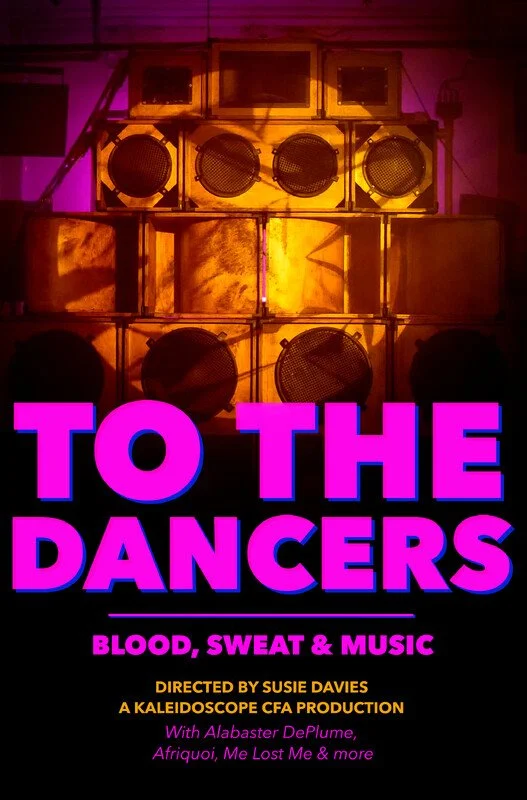To the Dancers
Synopsis: It’s 2023 and Britain is in pieces. Brexit is an embarrassment and electricity bills are through the roof. For many, heading to a local music venue is a necessary escape from life’s bleakness. But what’s on the cards for small music venues of today, fighting to survive the trials and tribulations of late-stage capitalism?
In the north east city of Newcastle the non-profit, multifaceted safe space Cobalt has made its home. There, the local queer scene and its queens party till late and rising stars such as Alabaster DePlume grace the stage. Anyone who’s been to Cobalt will tell you of its unrivaled hospitality and enchanting atmosphere. Yet even for a venue as unique as this one, existence is a fight for survival. Founders Mark, Kate and son Jacob must commit to 70-hour weeks to navigate challenges such as threats from developers in their gentrifying neighbourhood. Overheads rise and ticket sales dwindle as the disposable income of regulars is squeezed. This story calls into question why we fight so hard to dance together, in a society where the importance of art and culture is sometimes forgotten.
Director Statement
To the Dancers is a story about one small music venue in my city, but relates to music scenes worldwide. As the UK population suffers through the post-COVID, post-Brexit cost of living crisis, many find that dancing and listening to music has become more important than ever - as a form of relaxation, enrichment and escapism. Cobalt is a venue I’ve been attending since it opened, around 7 years ago. I’ve found that as life becomes more and more anxiety-inducing, it feels increasingly necessary to go there and move on the dancefloor. But as many people’s mental wellbeing depends on cultural venues, simultaneously art and music are simultaneously under constant threat due to rising costs and gentrification. Cobalt is no exception. I wanted to tell its story to remind audiences of what we sometimes take for granted. To dive into the chaotic, colourful world of Cobalt, we interviewed those who jam there, who groove there, who welcome you in through the door. We wanted to portray the variety and diversity of the space, so we filmed their full range of events, from wholesome life drawing to thumping, heaving club nights. But this is also a story about the people who drive Cobalt, with their endless determination and 70-hour weeks, and so interviews with founders Kate and Mark, and son Jacob, are integral to the film. It’s through them that we see an unwavering devotion to the arts which goes against all financial, physical and psychological logic.
I believe, as Kate and Mark do, that art strives to survive against all odds. This is where the three curated scenes come into play. A dancer, a musician and a DJ perform in the fast changing environment which surrounds Cobalt. Against a backdrop of the deindustrialised, the gentrified and the unaffordable, artists find a way to take space, to celebrate, to challenge and make noise. Just as Kate rallies in the film, I too believe art has the potential for social and even political change. This film is a call to action to anyone who creates or consumes art, to the artists and to the dancers: don’t underestimate the power of art.
Director Biography - Susie Davies
Susie Davies is a documentary filmmaker based in the UK’s North East. Her work revolves around underground music scenes, the transformation of urban spaces and artists’ relationships with gentrification.
Susie comes from a fine art background. Her film The Kick, The Snare, The Hat & A Clap, a documentary about a North East 1990s illegal party scene, was featured in international music magazines Mixmag, DJ Mag and Resident Advisor, and in The Guardian’s article on the Newcastle DIY scene.
Susie has worked for Newcastle based production company, Kaleidoscope CFA, as a director, editor and producer since 2021.



